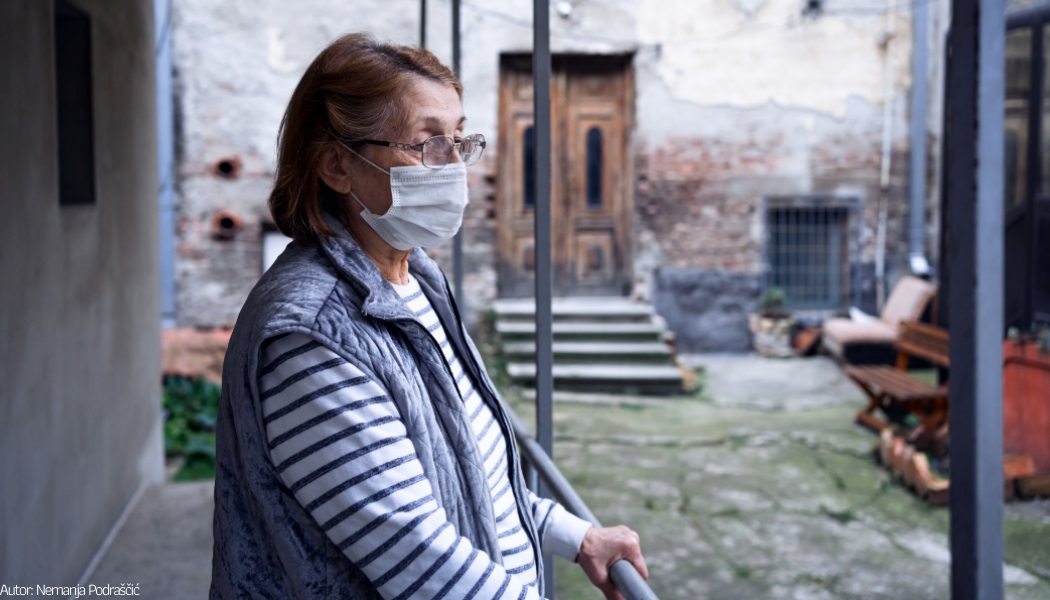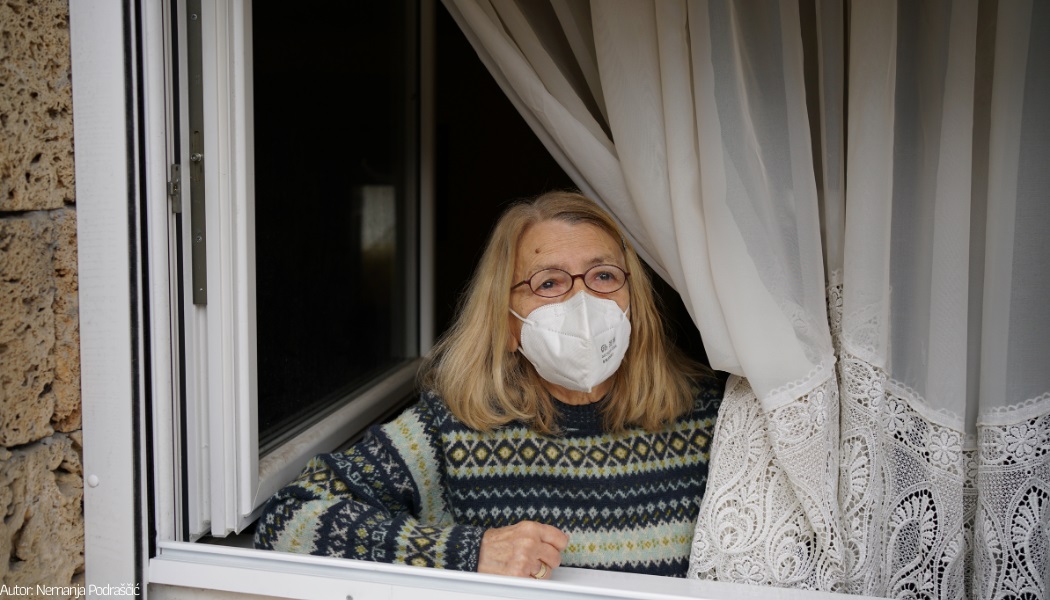- news
- conference "empowerment of older women: prevention of violence through changing social norms in serbia (emprev)"
Conference "Empowerment of older women: Prevention of violence through changing social norms in Serbia (EmPreV)"

The Red Cross of Serbia organised online conference "Empowering older women: Prevention of violence through changing social norms in Serbia and Austria (EmPreV)", which was held on January 29, 2021. The conference is part of a project implemented by the Red Cross of Serbia in partnership with the Austrian Red Cross and the Austrian Institute for Conflict Research, with the support provided by European Union and the Austrian Development Agency.
The conference was opened by Ljubomir Miladinovic, Secretary General of the Red Cross of Serbia; H.E. Ambassador Niklaus Luterotti, Austrian Ambassador to Serbia; Mateja Štamcar Norčić, Deputy Ambassador, Delegation of the European Union to Serbia; John Kennedy Mosoti, UNFPA and Brankica Janković, Commissioner for the Protection of Equality. All the mentioned speakers emphasized the importance of this topic and the importance of cooperation in order to make changes in the community regarding violence against older women.
In the second part of the conference, the results of the research were presented by experts working on the project: Prof. Dr Marija Babović, SeCons, Faculty of Philosophy, University of Belgrade; Prof. Dr Bojana Matejić, Faculty of Medicine, University of Belgrade; Natasa Todorovic, MPH, Red Cross of Serbia, International Network for the Prevention of Elder Abuse (INPEA). The goal of this research study was to show the situation in terms of prevalence, characteristics and consequences of gender-based violence against older women, as well as the extent to which they, in need of protection from violence, turn to different institutions and organizations, and how this system meets their needs.


Violence against older women is insufficiently visible and represents the tip of the iceberg, so it is necessary to first collect data on violence against older women, which includes generation cohorts separated by only five years, because in this way on the one hand the phenomenon will be understood better and on the other, prevention and response to violence will be improved. Data collection must also record specific forms of violence against older women. Violence targeting older persons also needs to be specifically recognized in the applicable legislation.
This research showed that in Serbia, 16% of older women aged 65 to 74 experienced some form of violence after reaching the age of 65. This type of violence is quite covert, victims rarely decide to report it, in our sample only one older woman reported being targeted by abuse. Older women choose to live violence for various reasons, out of fear, shame, economic dependence, while at the same time strong patriarchal patterns are present in the society. Since turning 15, 40% of women have experienced some form of violence by their current or former partner, while in the previous 12 months (after reaching the age of 65), 7.7% of women have had that experience. The most prevalent form is psychological violence, which was experienced by 38% of women over the age of 15 and 7% of women during the last 12 months (after turning 65).
In further work on prevention, it is necessary to educate older women about violence and various forms of violence, risk factors, as well as about the ways in which all parts of the system act when reporting violence. It is necessary to provide psychosocial support services to older women. It is necessary to include in the continuous education of relevant professionals dedicated parts that refer to the specifics of violence against older women, as well as to enable better coordination of all actors at local level.
It is also necessary to work on raising public awareness about violence against older women through various campaigns, and a very important activity is the fight against discrimination and changing the image of older women in order to promote their well-being in the society and their communities, and their image as active members of the society who contribute to their families, community and society.
The conclusion of the conference is that Serbia is not an isolated island, and that international cooperation and exchange of experiences is very important and significant in the prevention of violence against older women.
